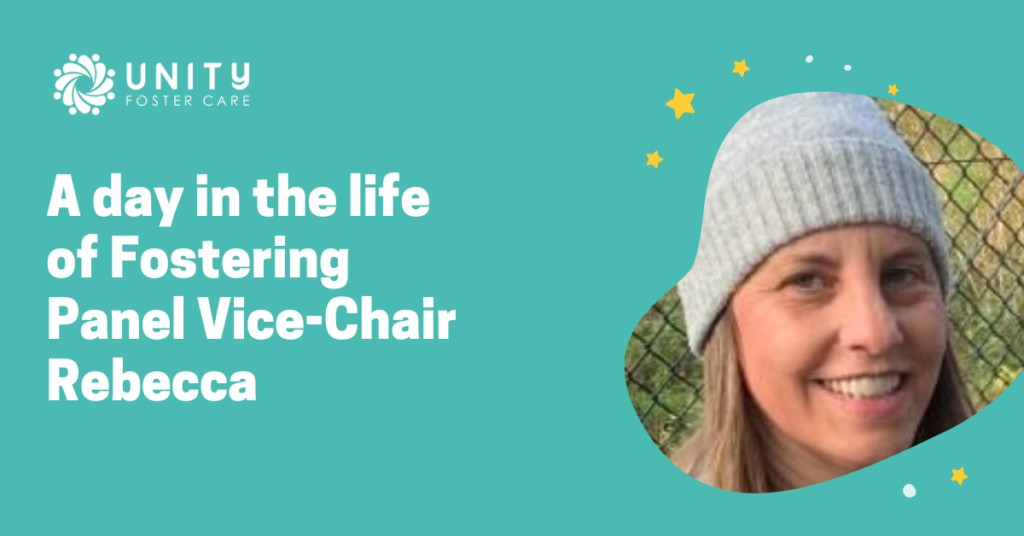A day in the life of Fostering Panel Vice-Chair Rebecca

As a foster carer begins their fostering journey, they have the opportunity to meet a lovely group of independent professionals, known as the fostering panel.
The fostering panel’s primary function is to provide a recommendation about an applicant’s suitability to become a foster carer, looking at things like skills, experience, and knowledge.
One member of panel is Rebecca. We sat down with Rebecca to explore more about her role and what applicants can expect from panel.
Can you please tell us a bit about yourself?
My name is Rebecca, and I’ve worked as an independent panel member for Unity Foster Care since 2020, recently taking on the role of panel vice-chair. I work as a primary school teacher alongside this, as well as sitting as an independent panel member on police misconduct hearings.
How did you end up in your current role?
I came to this panel through my work as a teacher, where I’d meet children who were fostered or adopted, and I wanted to understand more about this process and its impact on them. It’s important to me that I feel I’m making a difference, which is another reason why this role was appealing.
What does your current role involve?
I sit on the panel as an independent panel member but also occasionally chair the meetings, in the absence of the chair. All panel members read through the paperwork in advance of the panel meeting, so that they can prepare notes and questions. On the day of panel, we have a discussion and formulate the agreed questions we need to ask the carers or their supervising social worker (SSW). After we have met with the carers and their SSW, we usually ask the carers to leave the room, while we have a much briefer discussion. Then, we invite them back into the meeting to give our recommendation.
Why is the panel process so important?
The panel process is extremely important, as all panel members are independent of the fostering agency. As we all come from different professional backgrounds, there is a wealth of experience that we can draw on to help us make our recommendations.
Do you have any advice for passing the panel interview?
It might be easier said than done but try to relax! Panel members are very friendly and genuinely want what is best for the children and young people. Also, remember you will have your SSW with you to assist, if necessary.
What sort of questions do the panel ask?
We usually start with some ‘icebreaker’ type questions, such as ‘how have you found the assessment process?’ or ‘what have been the highlights of your first year as a foster family?’.
After that, the questions we ask are usually for clarification or where we need further information about something that was perhaps not addressed in the paperwork. It’s important for potential carers to remember that there are no trick questions! We also ask them if they have any questions for us too.
Best thing about your role?
Many things! I really enjoy working with the other panel members, as we are all from different professional backgrounds but have the same determination to put the children at the heart of all the recommendations we make. Also, in this role we meet some truly wonderful foster carers, who are doing amazing work supporting children and young people.
Any advice for someone considering fostering?
Contact a foster agency, as they can give you lots of advice. If you can, speak to other foster carers, and find out more about the role and expectations. Be open and honest throughout the process – fostering is a big responsibility; don’t be afraid to ask for help.
What do you get up to in your spare time?
I enjoy spending time with my family – both my teenagers are very sporty, so we enjoy finding new places to explore, going on walks, and playing racquet sports. We also love to travel as much as possible and regularly visit the beautiful island of Guernsey.
Could you make a difference to the lives of children and young people in your area?
Our friendly team are on hand to answer any questions you may have. To make a start on your application, call us on 0333 772 2333 or contact us online and we’ll be in touch.
